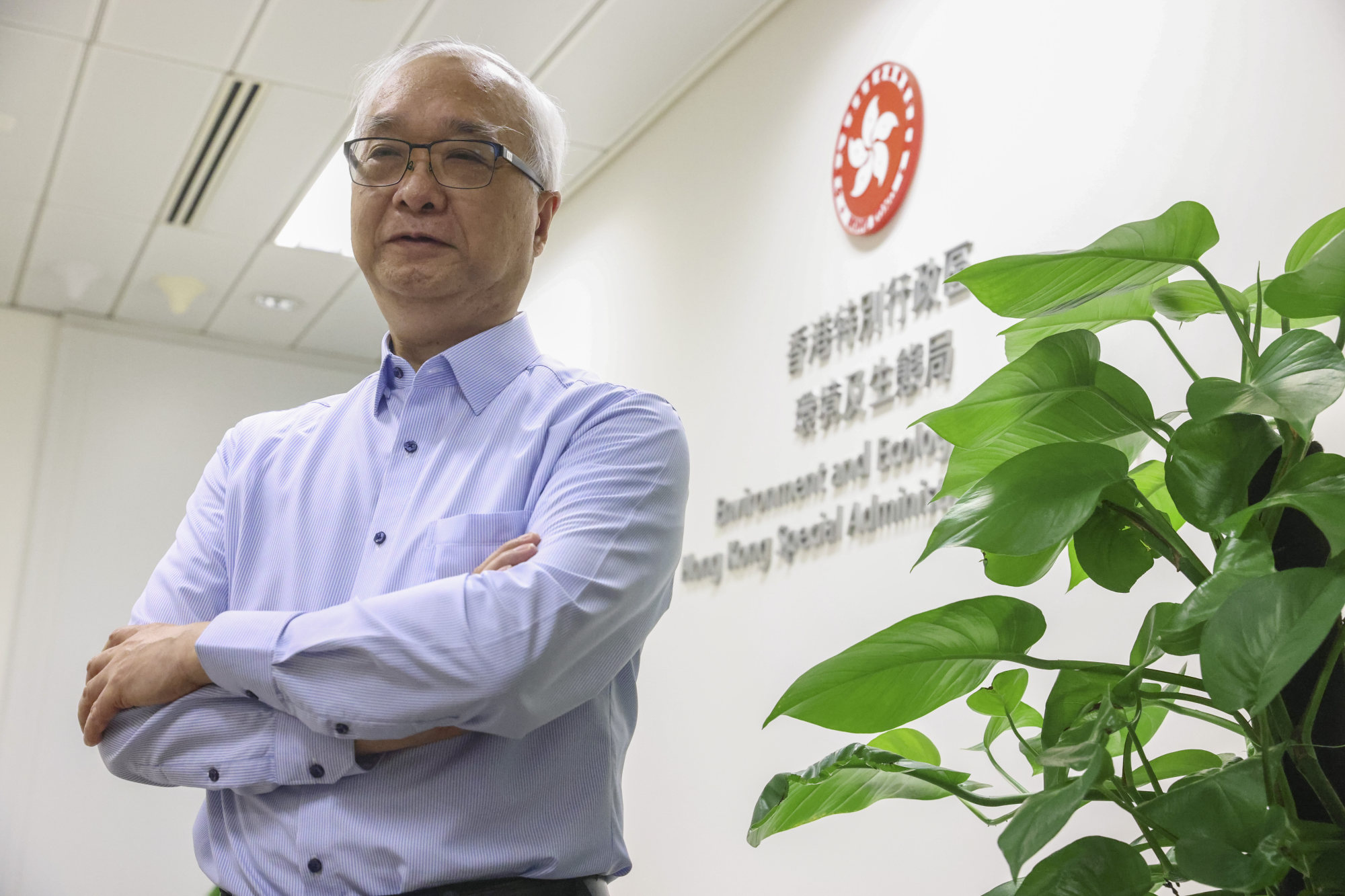
New commissioner to spearhead Hong Kong fight against climate change proposed; 6 other posts also planned for Environment and Ecology Bureau
- Commissioner for climate change and other new positions proposed in shake-up of Environment and Ecology Bureau to align city with Beijing targets
- Extra posts, expected to cost HK$17 million a year, also reflect increased ‘policy scope’ of bureau, minister says
Hong Kong’s environment chief has proposed a new commissioner devoted to tackling climate change as part of a HK$17 million (US$2.17 million) plan to bolster the city’s battle against the global ecological crisis.
The plan to create a commissioner for climate change, as well as six other positions, was part of a restructure of the Environment and Ecology Bureau designed to bring it into line with Beijing’s targets for carbon peak – the point where greenhouse gas emissions started to drop – and carbon neutrality, Tse Chin-wan said.
The secretary for environment and ecology added that the extra posts also reflected the increased responsibilities of the bureau over the past decade.
“Via the reconstruction, we can strengthen our governance and enforcement capabilities as our policy scope continues to expand and there are many more tasks,” Tse said. “We need to revise our outfit and redefine the roles.”
Tse said that the changes would allow the bureau to boost climate change action, and increase waste reduction, resources recycling and other environment-related work, including implementing a municipal solid waste charging next year.
He added that if the new roles were approved by the legislature he would not create any more new posts over the next five years.
Other proposed changes include a separate post of director of environmental protection, a role at present carried out by the permanent secretary for environment and ecology.
The Legislative Council’s panel on environmental affairs on Monday approved the proposal. But the green light from the legislature’s establishment subcommittee and finance committee will be required before the bureau can recruit for the roles.
According to a paper submitted to Legco, the new commissioner will be classed as a D3 multidisciplinary directorate post, the third-lowest out of the civil service’s eight-level hierarchy.

The bureau has proposed that the commissioner head a new office set up to handle climate change and carbon neutrality, as well as promote cooperation with mainland China and the rest of the world on the green agenda.
But environmental campaigners said the ranking of the new climate change commissioner was not high enough to have much effect on government policy.
“While it is a good thing that the government is going to have a subject officer on climate change, that person will only have coordinating powers. It’s inadequate,” said Chong Chan-yau, chief executive of non-governmental organisation CarbonCare InnoLab and a former government official.
“It seems to me that the person is going to be a letterbox and has no power in influencing other government departments.”
Chief Executive John Lee Ka-chiu renamed the Environment Bureau as the Environment and Ecology Bureau and widened its portfolio after he took office in July.
The revamped bureau also took sanitation services under its wing from the now-abolished Food and Health Bureau and assumed responsibility for the Observatory, which had been part of the Commerce and Economic Development Bureau.
Chinese President Xi Jinping last year set out the country’s goals to reach carbon peak by 2030 and carbon neutrality by 2060. He again highlighted the targets last week during the 20th congress of the Chinese Communist Party.
Tse promised when took up his post in July that he would update green goals set by the previous administration, including targets for carbon emissions reduction, waste elimination and air pollution.
